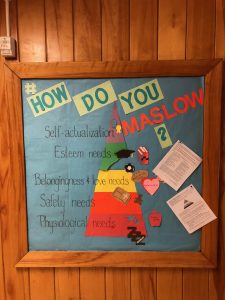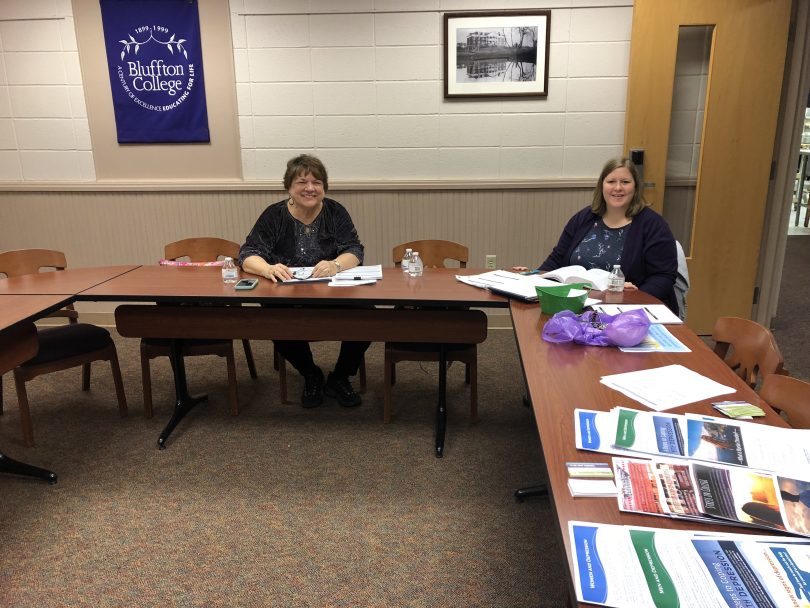One in four people have a diagnosable mental illness, according to campus counselor Rae Staton. Suicide is the second leading cause of death for college students, and the 11th highest cause of death overall in the United States. Anxiety is the number one mental health issue, overtaking depression.
Despite these staggering numbers, Staton said she doesn’t believe that mental health issues are taken as seriously as they need to be by many people.
In an attempt to change this, a free mental health screening was offered to Bluffton students on Oct. 11. The screenings were funded through a grant and sponsored by the counseling center and Student Life Office. It was also promoted by the student organization, Peer Awareness Leader Students (PALS), which seeks to spread awareness about the importance of mental health.
The screening itself looked for indicators of depression, anxiety, PTSD and bipolar disorder. It consisted of a simple questionnaire that students completed. Once completed, a scoring instrument was used on the questionnaire to indicate whether a person has no depression, mild depression or moderate depression. From there, counselors were able to recommend further action.
Once completed, a scoring instrument was used on the questionnaire to indicate whether a person has no depression, mild depression or moderate depression. From there, counselors were able to recommend further action.
“The counselors that are here will go over what [your results] might look like as a college student, what your risk factors are, how that might be affecting you, and then provide you with some resources,” Staton said.
Staton is the primary on-campus resource for students, but she is also able to provide off-campus referrals for students who might feel more comfortable seeking help beyond Bluffton.
Staton said she sees the United States’ collective inattention to mental health as problematic. She said if it were mosquito bites causing this many deaths, we’d be doing something about mosquitos.
“We’re still not treating it the way that we need to, so it’s important we continue to get the word out, and it’s important we continue to have events like this, so people know where to get help and know it’s nothing to be ashamed of,” Staton said. “There are biological factors, there are stresses your generation has encountered that my generation never dealt with, so it’s important for you guys to realize it’s more than okay to seek help.”
The general perception of mental health is one factor that keeps events like depression screenings from reaching the maximum numbers of students.
“No, it’s not [popular among students], because it is such a small campus, and there is still such a stigma with mental health,” said Staton.
PALS president Alexus Sponseller said the goal of PALS to spread awareness of difficult or stigmatized topics like mental health, drugs and sex. Sponseller said she believes mental health screening is important for all students to take advantage of, regardless of if they are concerned that they might be showing depressive symptoms or not.
“It’s always good to have a safe place to chat with someone about your experiences and feelings, even just for 10 minutes,” Sponseller said. “It will also benefit those that might be showing symptoms because they will be encouraged to connect with other resources.”
Both the counseling center and PALS organization will continue to promote the importance of mental health on campus throughout the academic year. The counseling center is currently planning a stress relief week and working to finalize another project related to depression and anxiety. PALS is also expected to hold events throughout the year.
“This year, I know we’re having an eight-hour counseling certification training, which will be awesome,” said Sponseller. “While I am hoping for many more mental health related events this year, I believe that the depression screening is an awesome step forward.”







